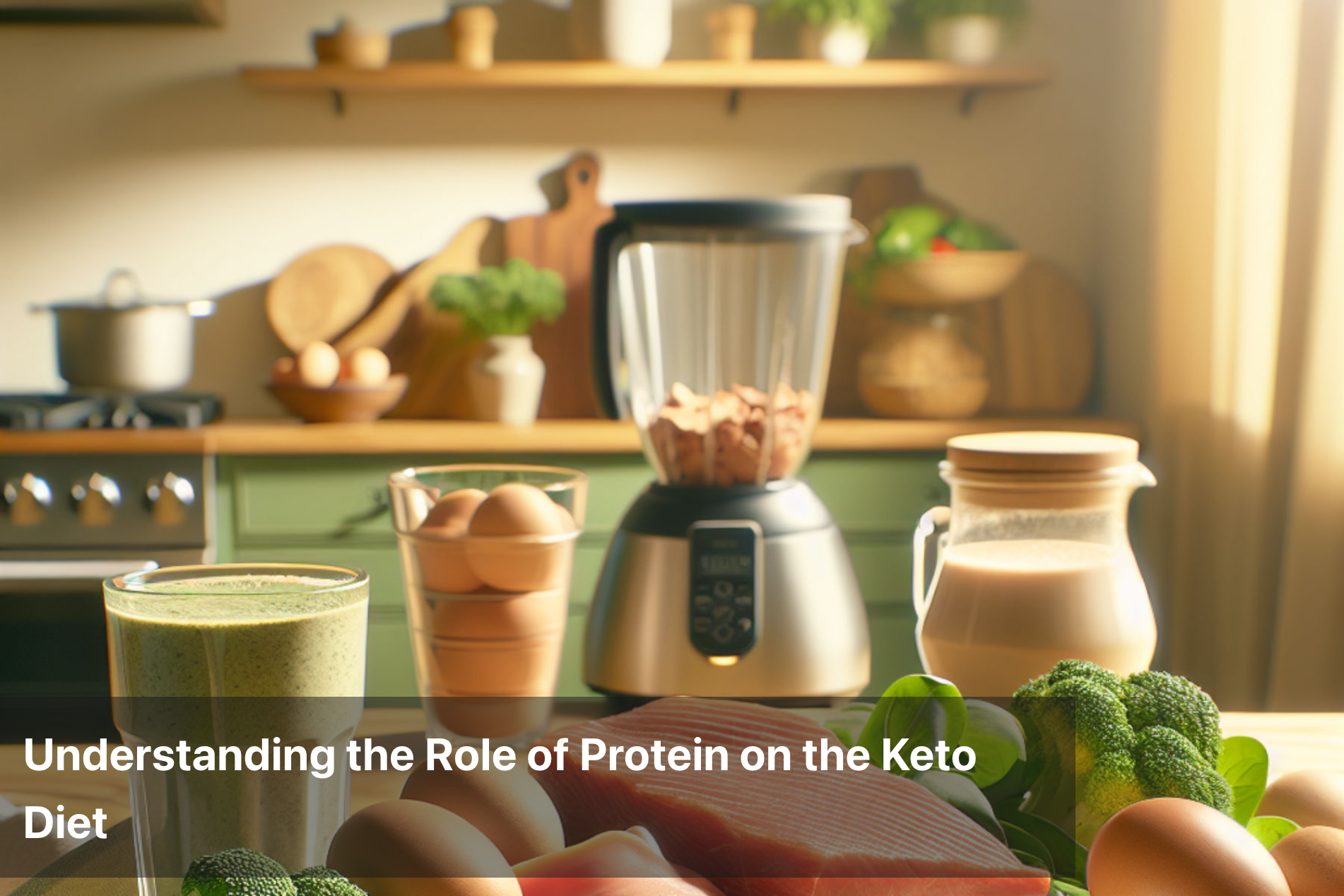
Understanding the Role of Protein on the Keto Diet
The ketogenic diet is best known for its low-carbohydrate and high-fat structure, but one often misunderstood component is protein. While fat is the primary energy source on keto, protein plays a crucial role in supporting muscle function, regulating hormones, and aiding metabolic processes. Striking the right balance is key—too little protein can lead to muscle loss, while too much can potentially disrupt ketosis.
Understanding the significance of protein on the keto diet, how it interacts with other macronutrients, and the best sources to incorporate into daily meals is essential for long-term success and overall health.

How the Keto Diet Works
The ketogenic diet drastically reduces carbohydrate intake (usually below 50 grams per day) and increases fat consumption to shift the body into a metabolic state known as ketosis. In this state, the liver converts fats into ketones, which serve as the primary fuel source instead of glucose.
While fats provide energy and carbs are minimized, protein must be carefully moderated. Unlike other low-carb diets that allow high protein intake, the ketogenic approach emphasizes moderate protein consumption. This is because excess protein can undergo a process called gluconeogenesis, where the body converts protein into glucose, potentially interrupting ketosis.
Why Protein Is Essential on Keto
Despite the need for moderation, protein is an essential macronutrient and serves several critical functions, especially on a keto lifestyle:
1. Muscle Maintenance and Repair
Protein supplies amino acids needed to build and maintain lean muscle mass. On keto, especially during calorie deficits or weight loss phases, adequate protein helps prevent muscle breakdown.
2. Hormone Production
Protein supports the creation of enzymes, neurotransmitters, and hormones like insulin and glucagon, which play vital roles in metabolism and blood sugar regulation.
3. Satiety and Appetite Control
Protein is highly satiating and helps control appetite by increasing hormones like peptide YY and reducing levels of ghrelin (the hunger hormone). This can naturally reduce calorie intake and aid in weight management.
4. Immune Function
Amino acids found in protein-rich foods help build and repair tissues, support antibody production, and maintain immune system strength.
Risks of Too Little or Too Much Protein
Finding the right protein intake on keto is about balance. Too little protein can lead to:
Muscle loss
Weakness and fatigue
Poor wound healing
Weakened immunity
On the other hand, excessive protein consumption—especially when combined with very low fat—can increase gluconeogenesis. This results in the body producing glucose from protein, which may raise insulin levels and reduce ketone production.
The goal is moderate intake—enough to support bodily functions and muscle mass without triggering excess glucose production.
How Much Protein Is Ideal?
Protein needs vary depending on factors like age, activity level, muscle mass, and individual health goals. As a general guideline:
Sedentary individuals: 0.6 to 0.8 grams of protein per pound of lean body mass
Active individuals or athletes: 0.8 to 1.2 grams per pound of lean body mass
For most people following keto, protein should make up 20–25% of total daily calories, while fat accounts for around 70–75%, and carbs are limited to 5–10%.
Tracking protein intake through apps or food diaries can help ensure balanced nutrition.
Best Protein Sources for Keto
Choosing the right protein sources is as important as how much you consume. On keto, the focus should be on whole, nutrient-dense, and low-carb options.
Category |
Recommended Foods |
Notes |
|---|---|---|
Animal Proteins |
Eggs, chicken, turkey, beef, lamb, pork |
Prefer pasture-raised, grass-fed when possible |
Fatty Fish |
Salmon, sardines, mackerel, tuna |
High in omega-3 fats and anti-inflammatory |
Dairy |
Paneer, cheese, Greek yogurt (unsweetened) |
High in calcium and healthy fats |
Plant-Based Options |
Tofu, tempeh, seitan (for vegetarians) |
Check for hidden carbs in processed versions |
Protein Powders |
Whey isolate, casein, collagen peptides, plant-based proteins |
Choose low-carb, sugar-free versions |
Lofoods Products |
Keto atta, low-carb protein snacks, seed mixes |
Convenient, clean, and keto-compliant |
Lofoods offers a range of keto-friendly, protein-rich foods designed to fit the Indian diet. Products like keto atta, low-carb namkeen, and nut-based snacks help meet protein needs without added sugars or refined carbs.
Symptoms of Inadequate Protein on Keto
Insufficient protein can manifest through several physical signs, especially if sustained over time:
Muscle weakness or loss of strength
Hair thinning or hair loss
Fatigue, especially during workouts
Poor skin health or delayed wound healing
Frequent illness or infections
If any of these symptoms occur, adjusting protein intake upward (within keto guidelines) can often resolve the issue.

Timing and Distribution of Protein Intake
Distributing protein evenly across meals improves absorption and maximizes muscle protein synthesis. Spreading intake throughout the day also helps maintain satiety and energy levels.
Examples of balanced daily intake:
Breakfast: Scrambled eggs with cheese and sautéed spinach
Lunch: Grilled chicken with avocado and leafy greens
Snack: Lofoods low-carb seed mix or paneer cubes
Dinner: Baked salmon with roasted vegetables and olive oil
Protein should complement fat-rich meals to help maintain ketosis and deliver complete nutrition.
Summary
Protein plays an essential, yet often misunderstood, role in the ketogenic diet. It supports muscle maintenance, hormonal function, immune strength, and overall metabolic health. While the keto diet emphasizes fat as the primary energy source, protein remains a cornerstone nutrient that must be included in the right amount.
Maintaining a moderate protein intake—neither too high nor too low—is key to staying in ketosis while preserving lean body mass and promoting long-term wellness. With quality options from sources like whole foods and Lofoods’ keto-friendly products, meeting protein needs becomes convenient, sustainable, and delicious.
This Blog post is an initiative by Lo! Foods, to provide accurate and Nutritionist / Doctor approved information related to Health. Lo! Foods is India's leading brand for Everyday Functional Foods. Foods designed for specific Health conditions or Needs. Lo! Foods also runs India's largest range of Low Carb Healthy Cloud Kitchens, under the brand names of Lo!, ProteinChef, ATH (All Things Healthy) and DiabeSmart.









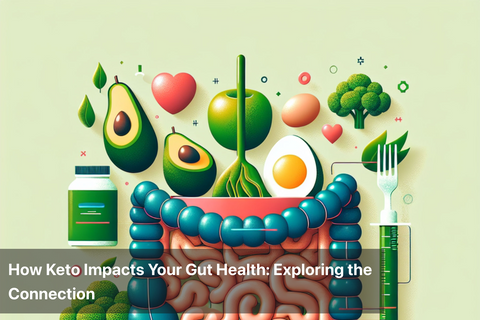
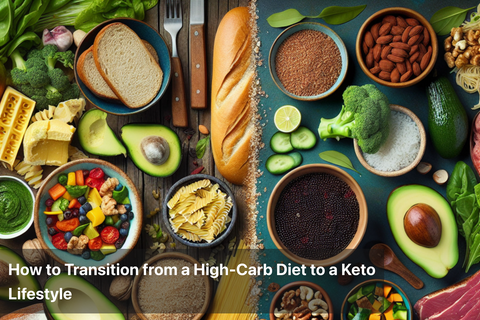
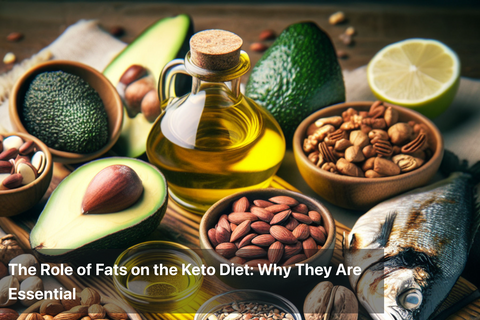
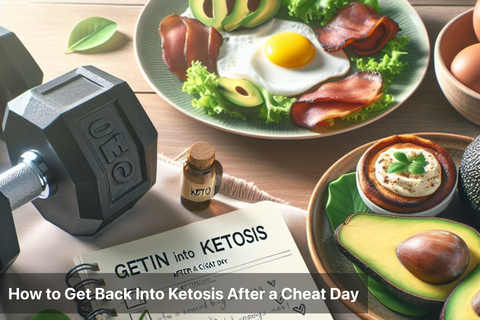
Leave a comment
Your email address will not be published.